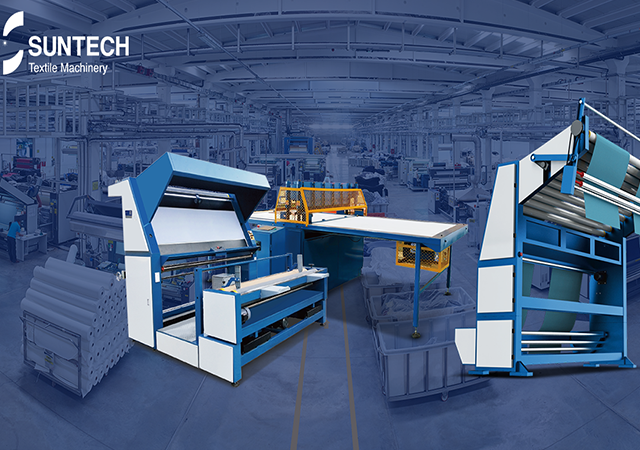The textile industry has witnessed a remarkable transformation since its inception, with the infusion of cutting-edge technology redefining the way textiles are produced. Textile machinery stands at the forefront of this revolution, playing a pivotal role in enhancing productivity, efficiency, and broadening the horizons of textile manufacturing.
Significance of Modern Textile Machinery
A Leap in Production Efficiency
Modern textile machinery has ushered in a new era of production efficiency within the industry. Automated marvels such as spinning frames, looms, and knitting machines have replaced manual labor, ushering in faster and more precise production processes. These machines handle substantial quantities of raw materials, streamlining production workflows and minimizing human errors. Manufacturers now meet soaring textile demands in a cost-effective and timely manner, all thanks to the wonders of textile machinery.
Crafting a Diverse Array of Textile Products
The adaptability of textile machinery has paved the way for a diverse spectrum of textile products. Specialized machinery caters to the production of a multitude of textiles, ranging from fabrics, yarns, threads, to non-woven materials. Whether it's the creation of delicate silk fabrics or robust industrial textiles, textile machinery empowers manufacturers to respond to a wide array of market requirements. By adjusting machine settings and parameters, textile machinery opens doors to endless creativity and innovation by offering textiles with varying textures, colors, patterns, and finishes.
Elevating Quality and Consistency
One of the standout virtues of textile machinery is its ability to maintain consistent quality across textile production. Precision and automation ensure that every textile produced adheres to stringent quality standards. By eliminating the inconsistencies and human errors often found in manual processes, textile machinery raises the overall quality and uniformity of final products. This is of paramount importance in industries such as fashion, automotive, and the medical sector, where uniform textiles are a prerequisite.
Championing Sustainable Textile Manufacturing
In recent years, sustainability has become a central focus for the textile industry, and textile machinery has risen to the challenge. Advanced machinery incorporates energy-efficient technologies, curbing power consumption and minimizing environmental impact. Additionally, modern machinery promotes the efficient utilization of raw materials, reducing waste in the production process. From sophisticated recycling systems to eco-friendly dyeing and finishing techniques, textile machinery equips manufacturers with the tools to embrace sustainable practices and contribute to a greener future.

A Technological Renaissance
The evolution of textile machinery continues at an accelerated pace, powered by advancements in technology. From computer-controlled machinery to intelligent automation systems, the integration of digital technologies has ushered in a revolution in textile manufacturing. Computer-aided design (CAD) software empowers designers to craft intricate patterns and designs with unparalleled precision. Robotics and artificial intelligence (AI) are making their foray into textile machinery, enhancing productivity and broadening the horizons of automation. These technological strides not only amplify efficiency but also unlock avenues for innovation, customization, and personalization within the textile industry.
Prioritizing Worker Safety and Comfort
Textile machinery has made significant inroads in improving worker safety and comfort. The automation of labor-intensive tasks mitigates physical strain on workers, reducing the risk of injuries stemming from repetitive motions. Moreover, the implementation of safety features and protocols in textile machinery ensures a secure working environment. By placing a premium on worker well-being, textile machinery fosters a more sustainable and ethical textile industry.
Textile machinery has been the driving force behind a paradigm shift in the textile industry, bringing forth efficiency, quality, and sustainability. With its capability to bolster production efficiency, craft diverse textiles, enhance quality and consistency, champion sustainability, and integrate technological breakthroughs, textile machinery empowers manufacturers to rise to the challenges of an ever-evolving market. As technology continues to advance, the future of textile machinery promises even more exciting possibilities, shaping the textile industry for years to come.




